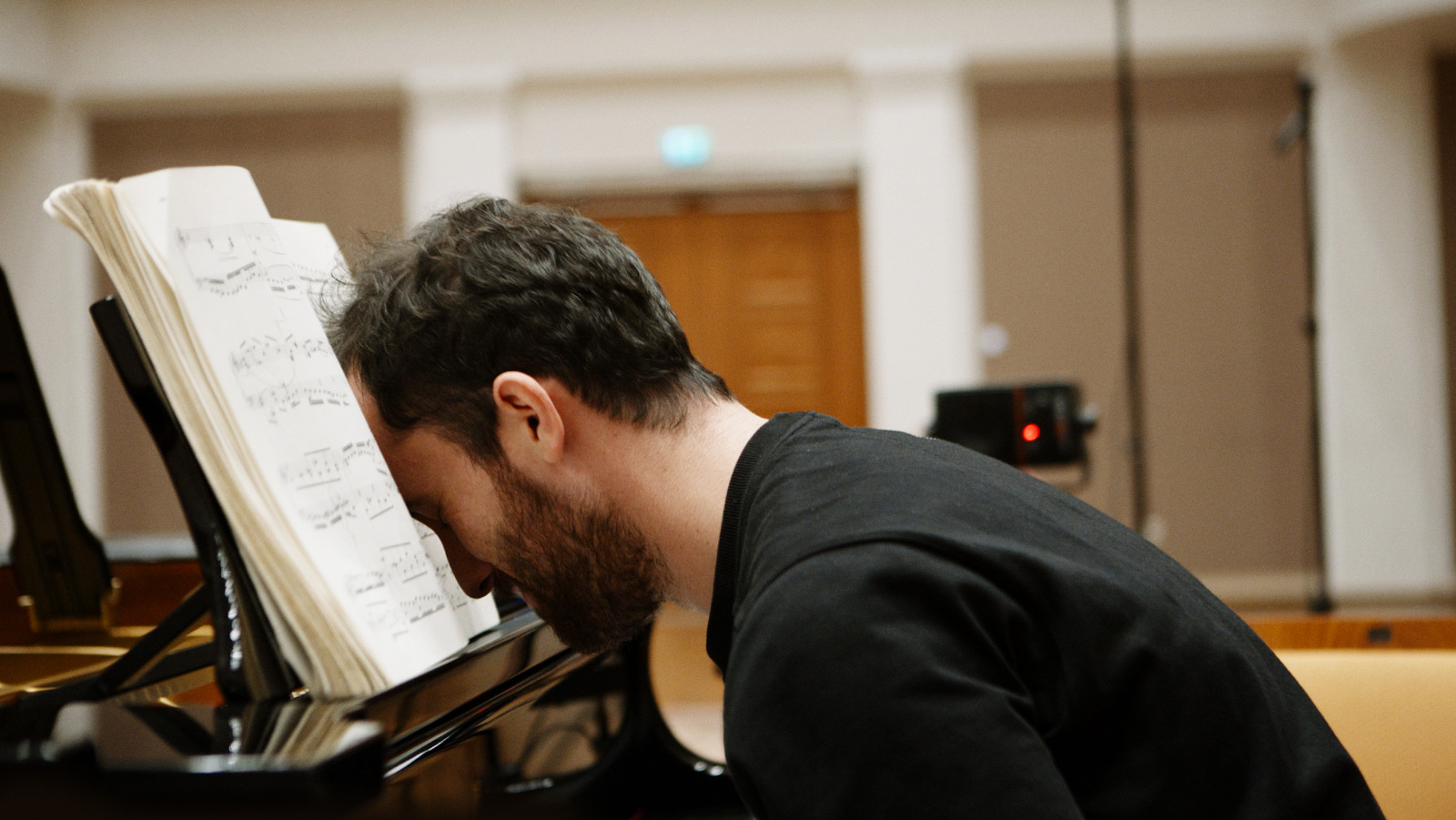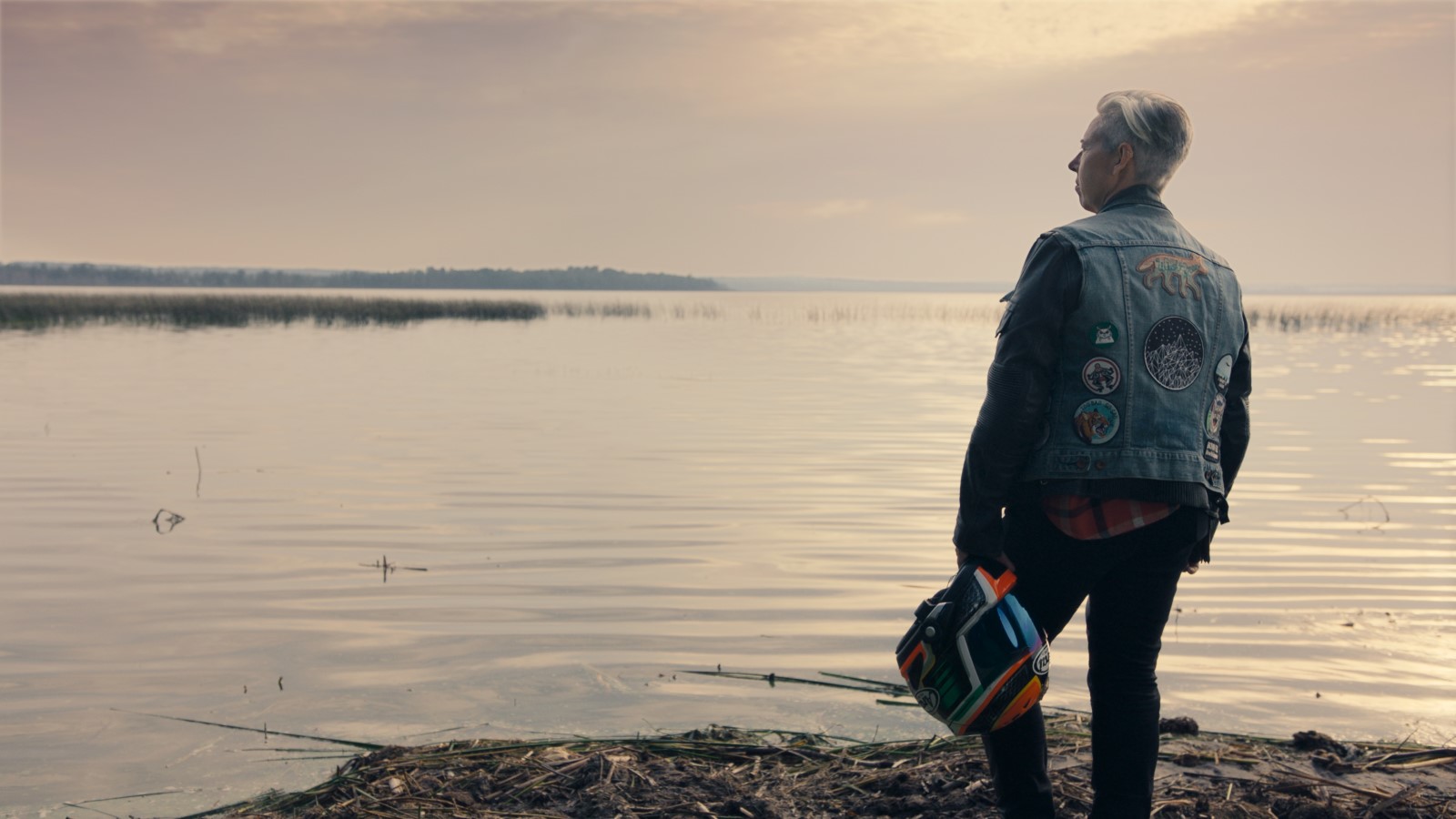Igor Levit – No Fear
(Germany, 118 min.)
Dir. Regina Schilling
Programme: Special Presentations (North American Premiere)
Over the course of his career, Beethoven wrote 32 piano sonatas, each one varying in intensity and musicality. Very few musicians have dedicated their careers to mastering and recording the 10 hours of music that collection entails – and that’s if you’re vivace about it. With his collection clocking at just five minutes over that, Igor Levit is certainly fit for the job. The renowned German-Russian concert pianist isn’t one for small talk, nor does he pad his words with niceties. This is not to say he is unkind, rather that he simply has one interest and one interest only: to perform.
And perform he does. As beads of sweat leap off his forehead deep into one of the collection’s more aerobic movements, you can see that his level of concentration is simply unmatched. He is so immersed in the music that he basically blacks out while performing it. However, it’s all in service of the sonatas. “It’s fearless music,” Levit describes them. “You need to have just as little fear when playing it.”
Enter Igor Levit – No Fear, directed by Regina Schilling, an apt title for both a man who learns to feel “no fear” as well as a documentary that evokes “no fear.” For all of Levit’s compelling qualities as a subject, Schilling’s direction is far too observational and hands-off for any of the story’s dramatic qualities to rise to the surface. Fans of the musician looking for a peek into his process will certainly enjoy the film, but as a purely cinematic character portrait, Schilling’s documentary is far too procedural to fully resonate.
One of the film’s most glaring yet surprising aspects is its lopsided structure. Despite being described as a film about Levit’s response to COVID-19, the film goes about an hour before even saying the word “virus.” Instead, the first half is largely dedicated to extended sequences of uninterrupted performing and mixing. Although Levit is a consummate pianist, there is only so much one gains from seeing Levit perform over and over. It doesn’t help that a majority of these moments are blandly shot and edited, as can be said for the documentary as a whole, making their overstayed welcome even more so.
However, what shines through this inconsistency are fascinating interrogations of Levit’s personality and philosophies. He begins the film as a beautifully enigmatic figure. In his first featured interview, he completely disavows his Russian origins – the composer moved to Germany but was born in Russia – and then posts a childhood photo with the hashtag #kidspicsagainstnazis. These all come into perspective later when Levit speaks about his experiences with antisemitism in Germany, a memory he recounts with pristine clarity and incredible candour. Levit’s outspoken political beliefs play a large role in his portrayal as a unique presence in the world of classical music.
In another stirring moment, Levit is shopping for clothes as he vividly recalls another tough memory: back when he weighed more as a teenager, a judgmental clerk scolded him saying that the store didn’t have anything for his body type. This inspired Levit to lose a significant amount of weight. It’s a small moment in the grand scheme of the documentary, but it’s emblematic of the subject. Despite a no-nonsense demeanour, Levit is a person who combats any strife with such force and ingenuity that nobody can stop him, even if it may be in response to deeper insecurity.
This psychological exploration is honed in the second half when Levit begins his now famous at-home concert series. This is but another response to an attack, this time the very thing that is foundational to Levit’s self-worth. At one point, he calls performing in concert settings “crucial to life.” He therefore goes on to perform over 50 livestreamed recitals and, in the process, expands his artistic sensibilities outside the Beethoven sonatas: Franz Liszt, Scott Joplin, George Gershwin, even Muddy Waters and James Baldwin.
This is the energy through which the documentary truly shines, even if it is stretched thin over an additional hour of runtime. When Levit finally returns to performing and recording, it is with a newfound inspiration that makes even long performance sequences more triumphant. Still, with a tighter visionary at the helm, this meaningful, at times even funny, portrait of one our greatest living classical pianists could have struck a much brighter chord.











